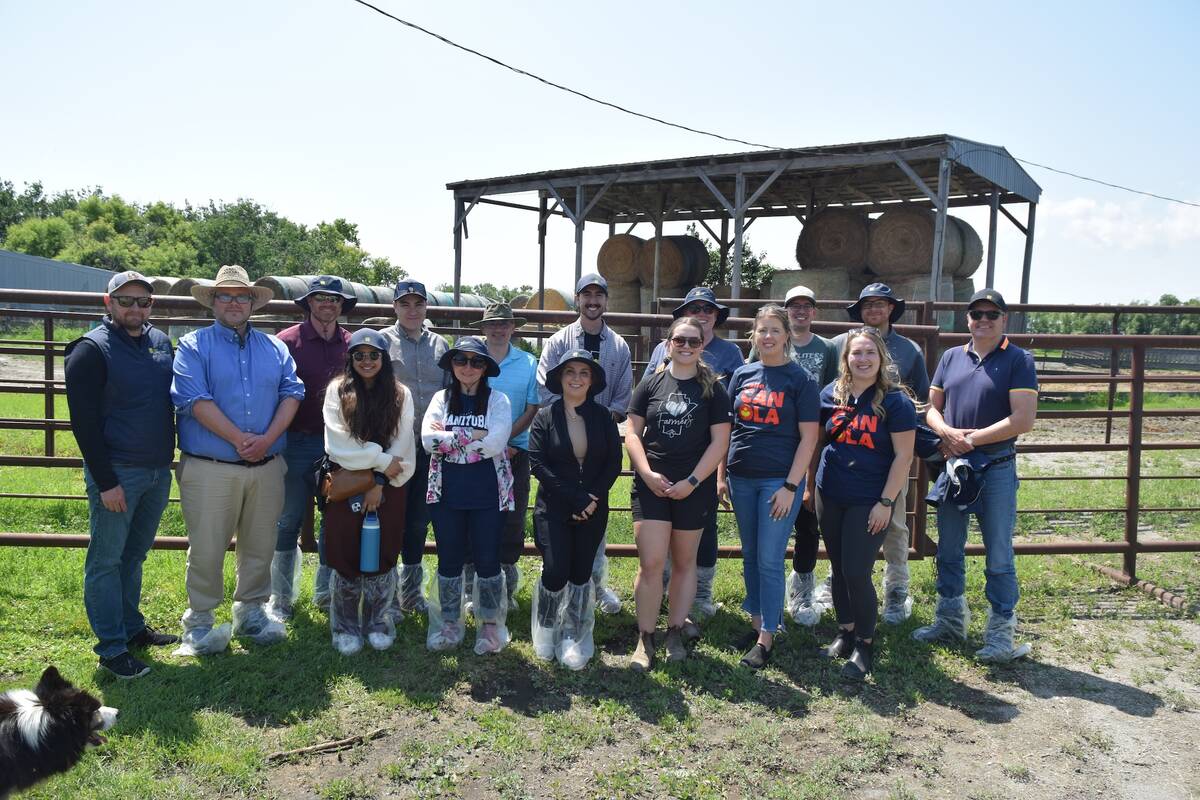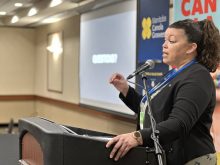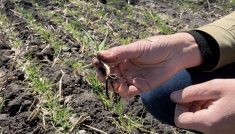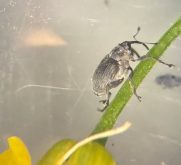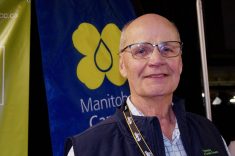Jackie Dudgeon-MacDonald invited 10 researchers of various specialties to her farm in late June because she thinks so much of agriculture, research does not seem applicable to her operation.
“I wanted to get the researchers out to our farm so I can show them how we operate and how we make decisions,” Dudgeon-MacDonald said.
She wants researchers to consider this question: “Does their work truly give farmers more return on investment?”
Read Also

Tie vote derails canola tariff compensation resolution at MCGA
Manitoba Canola Growers Association members were split on whether to push Ottawa for compensation for losses due to Chinese tariffs.
WHY IT MATTERS: Farm practices evolve as agricultural knowledge improves, but that evolution works better if farm realities are baked into agriculture research.
Dudgeon-MacDonald runs a cattle and grain farm with her husband in Darlingford in southcentral Manitoba. Their farm was the second stop on the Manitoba Canola Growers Association’s fourth annual Research Camp.
In total, six Manitoba farms were visited over two days.
“Research Camp brings researchers out to working farms, where farmers can share their goals and challenges, show how research helps them and encourage researchers to set project objectives that keep the farmer top of mind,” said Jared Bento, interim research and agronomy manager with the association.
One young University of Manitoba researcher, after the first stop with Jeremie Lussier at Morris, said it was the first time she had met a Canadian farmer. Another researcher, new to the University of Manitoba, said after meeting Dudgeon-MacDonald, “I had never met a woman farmer before.”
Dudgeon-MacDonald, upon hearing this, said it gave her chills.
Another participant, Michael Beck, said the event showed him the diversity of agriculture happening in Manitoba.
“It is always impressive to see how innovative, but also practical, solutions are being deployed by farmers,” said the University of Winnipeg associate professor in applied computer science.
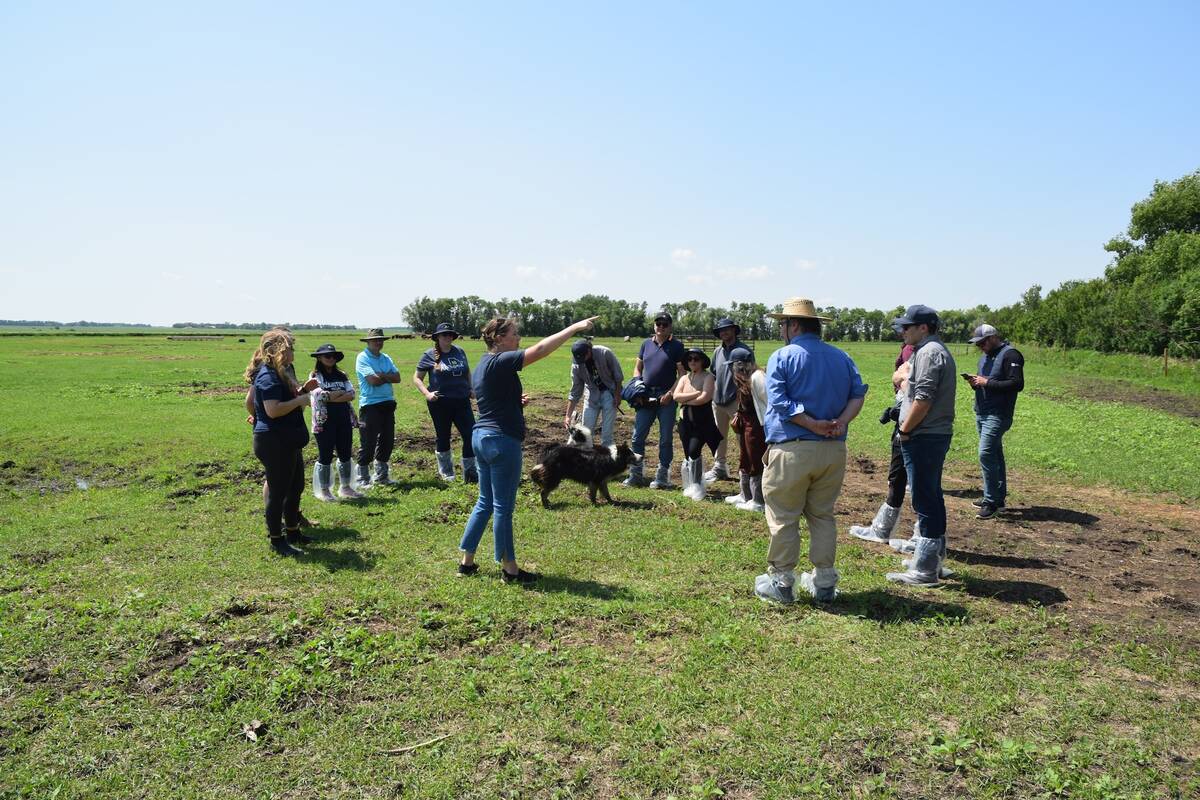
Beck’s research interests are in digital agriculture. He co-leads the university’s TerraByte research group. The TerraByte team “figured out how to obtain large quantities of labelled plant data to train machine learning models, which involved me building a robotic imaging system,” he said.
Beck attended because it is “important for us to regularly touch base with the people in the field, so that our methods stay relevant.
“At TerraByte, we are constantly at the lookout for people in ag to connect with and learn about their challenges.”
In addition to the Lussier and Dudgeon-MacDonald farms, campers also met Landon Friesen from Crystal City, Ricky and Amy Delaquis from Notre Dame de Lourdes, Jason Kehler from Carman and Paul Wurtz from Starlite Colony at Starbuck.
At each stop, farmers took an hour to describe their farm and current challenges. Landon Friesen expressed to campers his recent frustrations with canola: “Flea beetles, verticillium stripe, low cold tolerance and an apparent yield plateau.”
Dudgeon-MacDonald also wanted campers to know that farm issues, and their solutions, need to go beyond agronomy.
“For a lot of farmers, farming is not the only thing they do,” she said.
She and her husband each have off-farm jobs and they have two young kids.
“Research ideally also has to consider social and personal factors important to farmers. Like time. I want farm solutions that will give me time for the other things in my life,” she said.

